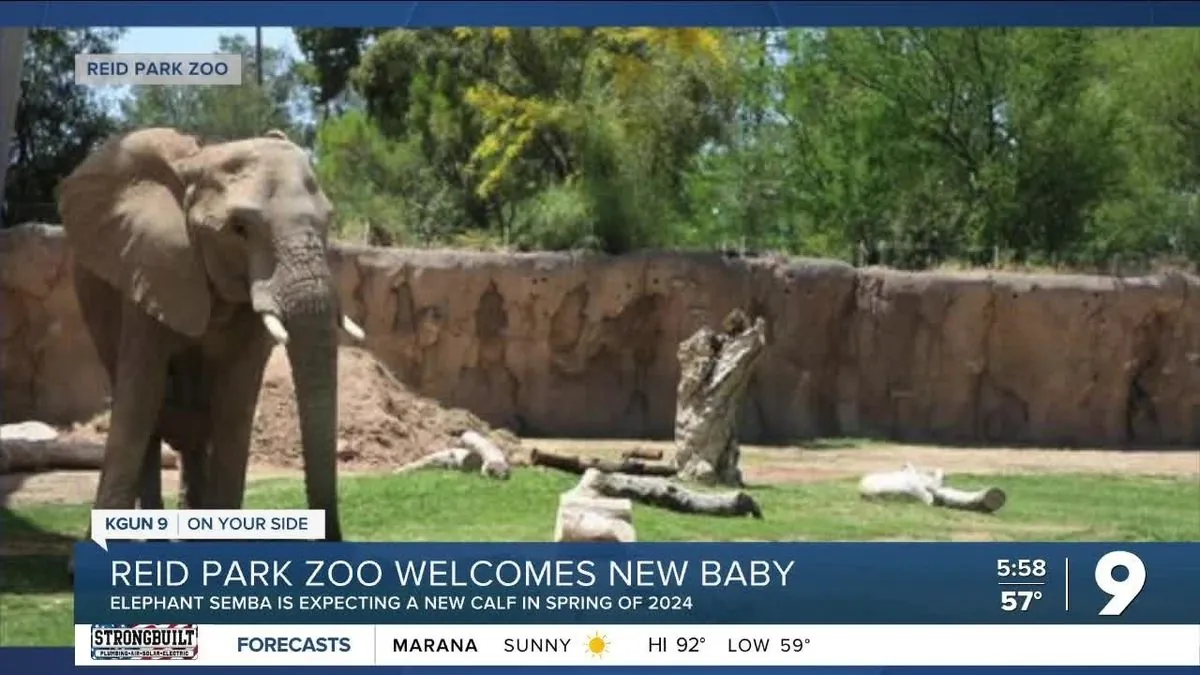The Fresno Chaffee Zoo, located approximately 240 kilometers southeast of San Francisco, has recently achieved a remarkable feat in its elephant breeding program. Two African elephant calves were born within a span of 10 days, marking the first elephant births in the zoo's history.
On August 26, 2024, Amahle, a female African elephant, gave birth to a calf, following the birth of another male calf to her mother, Nolwazi, on August 16. These births represent a significant milestone for the zoo's conservation efforts and highlight the complexities of elephant breeding in captivity.
Jon Forrest Dohlin, the zoo's chief executive, expressed enthusiasm about the new additions:
"To have two healthy calves is a historic milestone. We cannot wait for the public to see the new additions to our herd and share in our excitement."
The successful births are the result of a breeding program initiated in 2022 when the zoo introduced Mabu, a male elephant, to breed with the two females. This program aims to ensure the future of elephants in zoos, considering their long gestation period of 22 months and relatively few offspring.
African elephants, the largest land animals on Earth, are known for their intelligence and complex social structures. They can live up to 70 years in the wild and exhibit behaviors such as grief and altruism. These magnificent creatures are currently listed as endangered due to habitat loss and poaching, making conservation efforts crucial.
The zoo has expanded its elephant exhibit in anticipation of the growing herd. However, the breeding program has faced opposition from animal activists who argue that elephants should not be kept in zoos due to their complex needs. Elephants in the wild consume up to 300 pounds of food daily and play a crucial role as "ecosystem engineers" in their natural habitats.
For now, the elephants and their calves will be monitored behind the scenes. This period allows for crucial bonding time and ensures the health of both mothers and calves. Elephants are known for their strong familial bonds and matriarchal society led by the oldest and largest female.
As the zoo celebrates this breeding success, it also faces the ongoing debate about the ethics of keeping elephants in captivity. While zoos play a role in conservation and education, the challenge lies in providing an environment that meets the complex physical and psychological needs of these highly intelligent and social animals.
The births at Fresno Chaffee Zoo underscore the delicate balance between conservation efforts and animal welfare concerns, prompting continued discussions about the future of elephants in zoos and the importance of protecting these magnificent creatures in their natural habitats.
